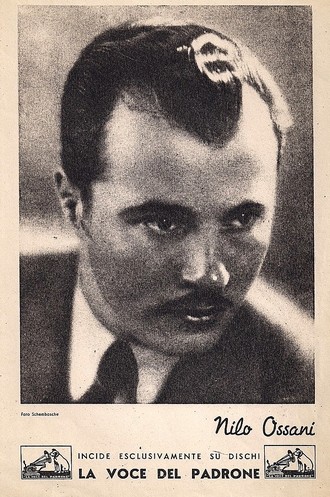Giuseppe Dal Pane had a lovely voice, and sang in the theater choir at his native Faenza as an amateur. When his theater was on tour in
Bergamo at the Teatro Donizetti, Dal Pane stepped in for a sick soloist in a tiny part in Medusa by Bruno Barilli. He was a
success, and so he studied voice at the Teatro dell'Opera in Rome, then with private teachers in Milano.
He auditioned with the well-known conductor Gino Marinuzzi, who hired him on the spot for the Maggio Musicale Fiorentino 1939, where Dal
Pane sang the short but highly difficult part of Ruodi in Guillaume Tell. In December of the same year, he was at La Scala for
Zandonai's Conchita, then at the Teatro Rozzi in Siena for Vivaldi's L'olimpiade, at the Teatro Garibaldi in Palermo and
the Teatro Verdi in Padova, both for Elvino in Sonnambula, and at the Comunale in Cesena for Almaviva. He also sang a concert
there, and for his "A te, o cara" received flattering compliments from Alessandro Bonci (shortly
before his death), who had been in the audience.
After WWII, he sang concerts in several cities, including a Bach program at La Scala. Then he finished his operatic career, chose Nilo
Ossani as his artist name, and became a very popular singer of canzoni in the wake of Carlo Buti.
Reference: Fernando Battaglia, L'arte del canto in Romagna. I cantanti lirici romagnoli dell'Ottocento e del Novecento,
Edizioni Bongiovanni, Bologna 1979
Picture source
